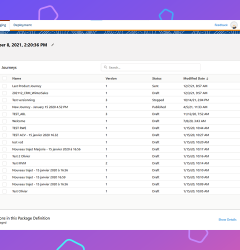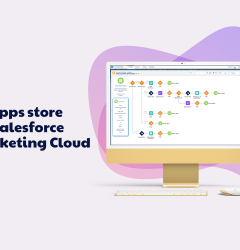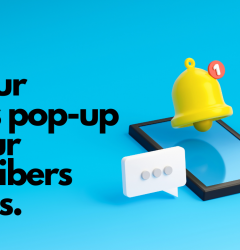30 Nov

It’s never too late… but we waited long enough!
Finally, there is a loyalty engine in Salesforce.
Loyalty Management (LM) is one of the latest Salesforce Products. It’s built on Core and is meant to be an “end-to-end loyalty platform”.
What does that mean?
Simply that you’ll be able to create your loyalty program(s) and manage membership, benefits, vouchers, partners, and all the associated rules from your CRM. You’ll also be able to use the loyalty engine data to fuel your CDP profiles or Salesforce Marketing Cloud journeys or Personalization Builder.
Now let’s dive in a bit…
What are the main components of Loyalty Management?
The program set-up
Loyalty Management allows you to define your Tier Groups and Currencies.
For Tier Groups, you’ll set the Tier Model, Period, and Qualifying Period.
For Currencies, you can manage Qualifying and Non-qualifying Currencies.
Members
Here again, you’ll find the cherished 360-view of your members: tiers, benefits, behavior, rewards, and engagement.
Voucher Management
You have to possibility to Issue vouchers of 3 different types: Fixed Value, Discount Percentage, and Free Product or Service.
Benefits Management
You can create and trigger benefit actions based on events or status.
Dynamic Promotions
You can set up and manage limited-time incentives for specific segments of members.
Partner Administration
You can also manage program partners.
Cross-cloud Loyalty Management
We said earlier that Salesforce Loyalty Management is an end-to-end platform. In Salesforce jargon that means it is a cross-cloud solution.
First, every edition comes with at least One Tableau CRM for Loyalty Management Base App.
Your program’s performance tracking is covered.
You can also use a Loyalty Management Template to enable your members on Experience Cloud. Leveraging Customer and Partner communities.
Promotions management through the Marketing Stack
If you’re using Salesforce CDP, you can create segments and connect them to Dynamic Promotions management in LM using the Loyalty Starter Bundle.
You can then activate those segments to Salesforce Marketing Cloud and send promotional emails or journeys.
If you’re not using a CDP but are using SFMC for your marketing campaigns, you can enable Loyalty Management objects (using MC Connect) and use data to trigger journeys.
To use Promotions in Email Studio, there are 2 Loyalty Management Content Blocks:
- Campaign Promotion and Tier Upgrade
- Loyalty Accrual Transactions and Loyalty Redemption Transactions
Loyalty Management and/or VoucherZ
Loyalty Management has plenty of features but from a Salesforce Marketing Cloud user point-of-view, a promotion (or coupon code or voucher, or gift card) is just a content block in an email.
Triggering a journey based on tier or LM data in general is pretty much the same as triggering based on any other Salesforce Data.
So? When does it make sense to use Loyalty Management components for SFMC or VoucherZ or standard SFMC features (i.e., Ampscript and Automations)?
Consider your sends, your organization, and your skills. Assuming Time-to-market is always critical, you can base your evaluation on this diagram:

Closing words
If you’re a customer-centric company, there are very few cases where you won’t consider launching a loyalty program. Having your Loyalty Engine embedded in your CRM is a no-brainer for Salesforce Customers.
However, a good way to get started with a turn-key solution is to install VoucherZ on your Salesforce Marketing Cloud org. That will provide you with valuable insights when building your loyalty program.
Related Post
Subscribe to receive notifications of new posts
Categories
- Data (4)
- Facebook (2)
- Happy @ Work (1)
- Instagram (2)
- Marketing Technology (29)
- Meta (2)
- TikTok (6)
app (7) calendarz (1) content builder (2) datorama (1) email builder (1) event (3) facebook (1) instagram (1) interaction studio (1) lead scoring (1) loyalty management (1) marketing strategy (4) salesforce (7) salesforce data cloud (1) salesforce marketing cloud (24) tiktok (3) voucher (5) whatsapp (2)
Copyright © 2019 Cezium. All rights reserved.



